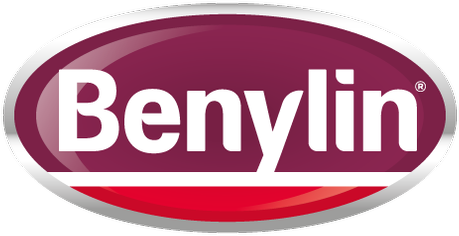Coughing After Eating: Causes and How to Manage it
Coughing is your body’s natural response to preventing or removing irritants from your respiratory system. It’s natural to occasionally cough after eating. However, if you’re coughing after eating persistently, this could be a sign of a more serious, underlying condition.
Here, we’ll help you learn more about coughing after eating – including what conditions could be causing your cough – as well as how to manage coughing after eating at home.
In this guide:
Why do I cough after eating?
If you cough after eating frequently, contact your GP to help you determine the cause. Some of the most common causes of coughing after eating include:
Acid reflux
Acid reflux occurs when stomach contents, such as acid, move back up the oesophagus (food pipe), causing irritatation or damage. This may trigger coughing, alongside other symptoms such as burping, regurgitation, heartburn (a burning sensation in your chest), and nausea.
Gastro-oesophageal reflux disease (GORD)
Gastro-oesophageal reflux disease (GORD) is a more severe and persistent condition of acid reflux and can cause a chronic cough that is common after eating.
GORD occurs when stomach acid frequently leaks up into the food pipe due to the weakening of a ring of muscle at the bottom of the oesophagus. You may experience other symptoms along with a cough after eating, such as heartburn and an unpleasant taste in the mouth.
Dysphagia
Dysphagia is a disorder where you have problems swallowing. Some people with dysphagia have issues swallowing certain drinks or foods, while others are unable to swallow at all.
Common causes of dysphagia include taking certain medications, having a learning disability, or having conditions that affect breathing, the nervous system, or the brain.
Symptoms of dysphagia include frequent coughing after eating or drinking, regurgitation, and a feeling that food is stuck in your throat or chest. Over time, dysphagia can lead to repeated chest infections, dehydration, and weight loss.
Dysphagia can be serious condition, so get in touch with your GP as soon as possible if you cough or choke frequently while eating or drinking.
Asthma
Asthma is a common condition that affects the lungs and causes occasional breathing difficulties. It often includes symptoms such as wheezing, coughing, and a tightness in the chest.
While asthma mostly starts in childhood years, it can also develop when you’re older. The symptoms of asthma, such as coughing after eating, may appear after you consume food or drinks that contain added or natural sulphites – especially if you’re sensitive to such compounds. These include pickled onions, dried fruits and vegetables, soft drinks, wine and beer.
Allergies
Food allergies usually appear in childhood, but they can occur at any age. Symptoms of a food allergy reaction usually appar within two hours of consuming the food allergen.
Food allergy symptoms can vary from person to person, and in some cases, they can affect the respiratory system. This may cause you to sneeze and cough after eating. Other respiratory symptoms may include wheezing and shortness of breath.
In rare cases, food allergies can lead to anaphylaxis, which can be life-threatening. If you suspect you or anyone else is experiencing an anaphylactic reaction, call 999.
Aspiration pneumonia
At times, drops of liquid or small pieces of food can make their way into your lungs when you drink or eat something. These partcicles can introduce bacteria to your lungs.
Your lungs should normally clear themselves out after this, but if they don’t, the bacteria can cause a condition known as aspiration pneumonia. Disorders such as dsyphagia or acid reflux can increase your chances of developing the condition.
A common symptom of aspiration pneumonia is a wet-sounding cough after eating. Other accompanying symptoms can include heartburn, wheezing after eating, painful swallowing, and congestion.
Please note, Benylin® products are not indicated for these illnesses or conditions.
How to manage a cough after eating
The following steps can help you manage coughing after eating at home. However, if you suspect you have an underlying condition, or continue to cough persistently after eating, get in touch with your GP. They can provide you with a diagnosis and advice on how to manage your condition.
You can help reduce the risk of coughing after eating by:
Eating more slowly
Chewing thoroughly
Eating smaller bites and taking smaller sips
Drinking water with meals
Keeping a food diary to identify any particular food or drink items that make you cough
Following any advice from your doctor on treatment and management of a related condition
Coughing after eating FAQs
How can I reduce phlegm after eating?
Drinking more water to stay hydrated can help reduce phlegm after eating. Gargling with a teaspoon of salt in a glass of warm water can also help clear away mucus and ease an irritated throat.
Why do I get phlegm after eating?
Some foods can cause an allergic reaction, which can trigger symptoms within your respiratory system. This can include wheezing, sneezing and coughing after eating.
What foods cause mucus?
Certain foods can worsen issues with phlegm, including dairy items and food that is high in fat. Similarly, consuming a lot of drinks that lead to fluid loss, such as alcohol and caffeinated drinks, can also lead to excess mucus production.
